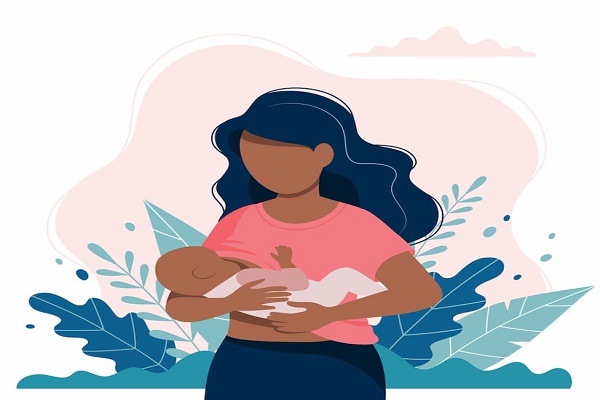World Breastfeeding Week 2021: Breastfeeding is Babies’ First Vaccine
“While there has been a progressing in breastfeeding rate in the last four decades – with a 50% increase in the prevalence of exclusive breastfeeding globally – the Covid-19 pandemic highlights the fragility of those gains.”
The World Breastfeeding Week is observed every year from 1 -7 August to generate awareness among new parents and enhance the health of infants worldwide. The awareness programme began in August 1990 by governments as well as specialised UN bodies of World Health Organization (WHO), United Nations Children’s Emergency Fund (UNICEF), among others to galvanise actions with regard to breastfeeding.

“Initiation of breastfeeding within the first hour of birth followed by exclusive breastfeeding for six months and continued breastfeeding for up to two years or beyond offer a powerful line of defence against all forms of child malnutrition, including wasting and obesity. Breastfeeding also acts as babies’ first vaccine, protecting them against many common childhood illnesses,” said UNICEF Executive Director Henrietta Fore and WHO Director-General Dr Tedros Adhanom Ghebreyesus.

“While there has been a progressing in breastfeeding rate in the last four decades – with a 50% increase in the prevalence of exclusive breastfeeding globally – the Covid-19 pandemic highlights the fragility of those gains,” they added.
The World Breastfeeding Week 2021’s theme is, ‘Protect Breastfeeding: A Shared Responsibility’. They observed that it is about time for revisiting the commitments made at the beginning of the year by giving a priority to breastfeeding-friendly environments for mothers and babies. WHO and UNICEF list out the following:

- “Ensuring the International Code of Marketing of Breastmilk Substitutes – established to protect mothers from aggressive marketing practices by the baby food industry – is fully implemented by governments, health workers and industry.
- Ensuring health care workers have the resources and information they need to effectively support mothers to breastfeed, including through global efforts such as the Baby-friendly Hospital Initiative, and guidelines on breastfeeding counselling.
- Ensuring employers allow women the time and space they need to breastfeed; including paid parental leave with longer maternity leave; safe places for breastfeeding in the workplace; access to affordable and good-quality childcare; and universal child benefits and adequate wages.”

post_id:
uld_count:
Cookie not set
Value 1: 0
Value 2: 10
















